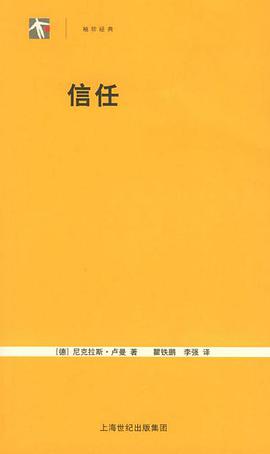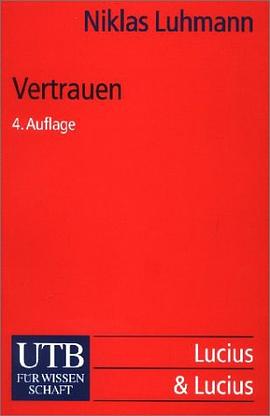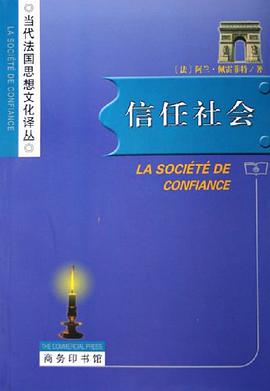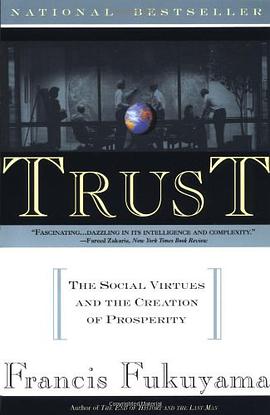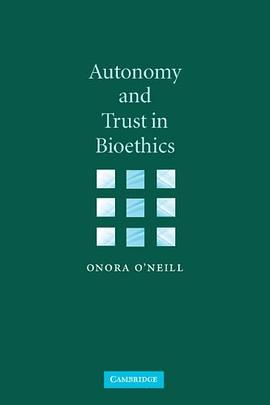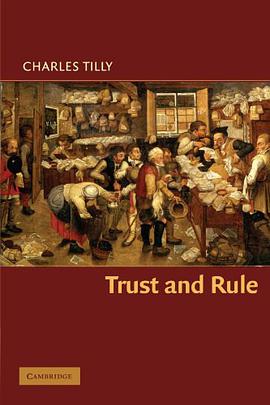信任
信任社会 豆瓣
作者:
阿兰·佩雷菲特
译者:
邱海婴
商务印书馆
2005
- 10
何谓发展?是什么促成了现代性,进步和经济增长?自亚当·斯密、卡尔·马克思、马克思·韦伯直到费尔南·不布罗代尔,人们不断地探究“国富”或国穷的根源。大多数思想家都强调物质原因:资本、劳动、自然资源、气候。会不会是思想观念和行为态度构成发达或不发达的要素吗? 为了考量这个可充分发挥的假设,阿兰·佩雷菲特提出重新审视15世纪到18世纪西方基督教民族的历史。他特别证明了欧洲的发展缘于他称做“信任品性”的东西——一种禀性,他打破了传统禁忌,促进了创新、移动性、竞争、理性而负责的首创精神。 今天我们需要重新找回的不正是这种信任吗?如何找回呢?
Trust 豆瓣
作者:
Francis Fukuyama
Free Press
1996
- 6
In his bestselling The End of History and the Last Man, Francis Fukuyama argued that the end of the Cold War would also mean the beginning of a struggle for position in the rapidly emerging order of 21st-century capitalism. In Trust, a penetrating assessment of the emerging global economic order "after History," he explains the social principles of economic life and tells us what we need to know to win the coming struggle for world dominance. Challenging orthodoxies of both the left and right, Fukuyama examines a wide range of national cultures in order to divine the underlying principles that foster social and economic prosperity. Insisting that we cannot divorce economic life from cultural life, he contends that in an era when social capital may be as important as physical capital, only those societies with a high degree of social trust will be able to create the flexible, large-scale business organizations that are needed to compete in the new global economy. A brilliant study of the interconnectedness of economic life with cultural life, Trust is also an essential antidote to the increasing drift of American culture into extreme forms of individualism, which, if unchecked, will have dire consequences for the nation's economic health.
Autonomy and Trust in Bioethics 豆瓣
作者:
Onora O'Neill
Cambridge University Press
2002
- 6
Why has autonomy been a leading idea in philosophical writing on bioethics, and why has trust been marginal? In this important book, Onora O'Neill suggests that the conceptions of individual autonomy so widely relied on in bioethics are philosophically and ethically inadequate, and that they undermine rather than support relations of trust. She shows how Kant's non-individualistic view of autonomy provides a stronger basis for an approach to medicine, science and biotechnology, and does not marginalize untrustworthiness, while also explaining why trustworthy individuals and institutions are often undeservingly mistrusted. Her arguments are illustrated with issues raised by practices such as the use of genetic information by the police or insurers, research using human tissues, uses of new reproductive technologies, and media practices for reporting on medicine, science and technology. Autonomy and Trust in Bioethics will appeal to a wide range of readers in ethics, bioethics and related disciplines.
Trust and Rule 豆瓣
作者:
Charles Tilly
Cambridge University Press
2005
- 7
Rightly fearing that unscrupulous rulers would break them up, seize their resources, or submit them to damaging forms of intervention, strong networks of trust such as kinship groups, clandestine religious sects, and trade diasporas have historically insulated themselves from political control by a variety of strategies. Drawing on a vast range of comparisons over time and space, Charles Tilly asks and answers how, and with what consequences, members of trust networks have evaded, compromised with, or even sought connections with political regimes.
